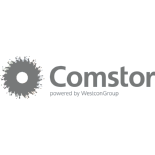
Artificial Intelligence (AI) has been revolutionizing various industries, and the world of recruitment is no exception. As technology continues to advance, AI is poised to play an increasingly prominent role in shaping the future of recruitment processes. In this article, we will explore the transformative potential of AI within recruitment and how it is likely to reshape the hiring landscape.
Enhanced Candidate Sourcing:
AI-driven tools are becoming indispensable in sourcing candidates efficiently. AI algorithms can scan through countless resumes and online profiles, identifying the most suitable candidates based on specific criteria, such as skills, experience, and cultural fit. This not only saves time for recruiters but also ensures a broader talent pool is considered.
Streamlined Screening and Assessment:
AI-powered chatbots and virtual assistants are making the initial stages of candidate screening more efficient. These AI tools can conduct preliminary interviews, pose relevant questions, and evaluate responses, allowing recruiters to focus on more complex tasks. Moreover, AI-driven assessments can provide objective insights into a candidate's skills and abilities.
Improved Candidate Experience:
AI-driven technologies are enhancing the candidate experience by offering quicker responses to inquiries, providing status updates on applications, and offering personalized communication. Chatbots, for instance, can engage with candidates 24/7, ensuring candidates feel valued throughout the recruitment process.
Bias Reduction:
One of the most significant advantages of AI in recruitment is its potential to reduce unconscious bias. AI algorithms make decisions based on data and predefined criteria, minimizing the impact of personal biases in candidate selection. This contributes to a fairer and more diverse hiring process.
Predictive Analytics for Talent Management:
AI can analyse historical hiring data and employee performance to identify patterns that lead to successful hires. This data-driven approach can help organizations make better-informed decisions regarding candidate selection and talent management. Predictive analytics can also aid in succession planning and workforce optimization.
Automation of Routine Tasks:
Recruiters often spend a substantial amount of time on administrative tasks, such as scheduling interviews, sending follow-up emails, and managing candidate databases. AI-powered tools can automate these repetitive tasks, allowing recruiters to focus on strategic activities that require human judgment and creativity.
Continuous Learning and Development:
AI can assist in identifying skill gaps within an organization and recommending personalized learning paths for employees. This helps in upskilling the existing workforce and ensuring that the company remains competitive in a rapidly evolving job market.
Challenges and Considerations:
While AI holds great promise in recruitment, it also poses some challenges, including concerns about data privacy, ethical considerations, and the need for human oversight. It's essential for organizations to strike a balance between automation and human touch to ensure a positive and ethical recruitment experience.
Conclusion:
The future of AI in recruitment is bright and promising. By leveraging AI-driven tools and technologies, organizations can streamline their hiring processes, reduce bias, and make data-informed decisions. As AI continues to evolve, it will become an indispensable partner for recruiters, helping them find the best talent efficiently and effectively. However, it's crucial to approach AI adoption thoughtfully, considering both its benefits and potential limitations.















